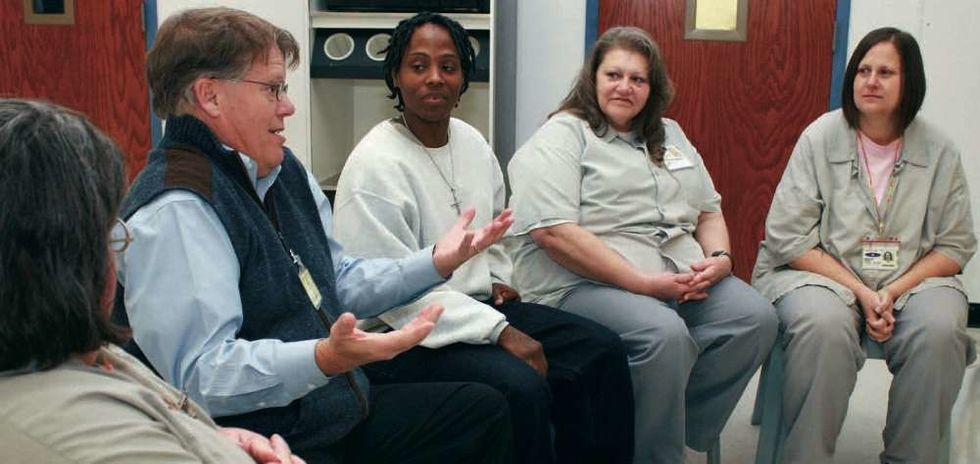In case you aren't familiar with the Inside-Out Prison Program, you can learn more about it here. If you are an OU student, I definitely encourage you to apply if you are even remotely interested in the criminal justice field or in sociology. It was by far one of my favorite classes that I have taken in college.
Experiencing the Inside-Out Prison Exchange Program was a once-in-a-lifetime opportunity to go to a women's prison once a week and be their classmate. It was such an interesting experience from the first night up until the last we had together (I would have had eight more weeks with them if it wasn't for COVID-19). I am still grateful for the experience I had even if it was for a short time.
The class covered a bunch of topics like marijuana use, history of substance abuse, prescription drug diversion programs, over-the-counter drug misuse among youth, drug addiction, alcoholism, and the war on drugs. Oftentimes the "inside" students would share their stories with us, the "outside" students, and tell us how they got to where they are now.
Most of them say they were around bad people and it was a bad time in their lives.
They agree that they deserve some type of punishment for the crimes that they had done.
Most of their arguments were about the length of their sentences.
Some women that I had met had been sentenced to life without parole and were absolutely heartbroken over the fact that they will miss out on being a mother to their kids. Prosecutors have complete immunity in the eyes of the law, and that protects them. It is something that needs to be re-evaluated and changed.
Another huge topic we often talked about in class was substance abuse rehabilitation programs. When I was in middle school, we had to watch some videos about drug use and the dangers of it, but it taught us about the drugs (not necessarily a good prevention tactic). All of the inside students said the same thing about the rehabilitation programs that they were involved in — that they felt like it was a joke. Some of the inside students talked about using drugs when they were 10 years old. They talked about growing up without parents, or what it was like to grow up in a poor community or out on the street. It was terrible, and I don't blame them for anything, because if a little kid grew up and if all he or she knew was the streets and how to sell drugs — guess what that kid is going to grow up doing.
It is so difficult to break that chain and often feels impossible to a lot of them, but it is definitely not impossible.
We also talked about other prisons across the U.S. and in the world and how different countries view incarceration and sentencing laws differently. Ireland is apparently the place to be if you were to ever be incarcerated because they firmly believe in rehabilitation and want to see you succeed in contrast to the U.S.'s policy of being sentenced to life without parole. It is no surprise that there is a huge racial disparity in our criminal justice system. There is a lot that needs to be fixed and or changed. I personally study wrongful conviction cases and that is my specialty, so it is hard for me to understand why people knowingly commit a crime in the first place if they know that they are not innocent. Nonetheless, I still loved talking to them and hearing their stories.
The Inside-Out program was a once-in-a-lifetime experience to walk inside a women's medium-security prison and talk with them and learn right next to them. It was incredibly eye-opening for me and has made me so much more passionate about our criminal justice system because I want to be a part of the change in both Oklahoma and the rest of the United States.
By the end of the semester, I felt like the inside students were my friends. It has been so sad that the class will never get closure or get to see them again thanks to COVID-19. But I wish them all the best and I hope that they all get to be reunited with their families one day.


















